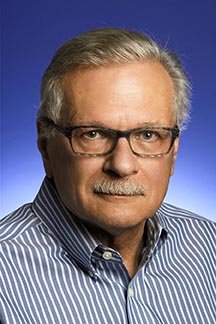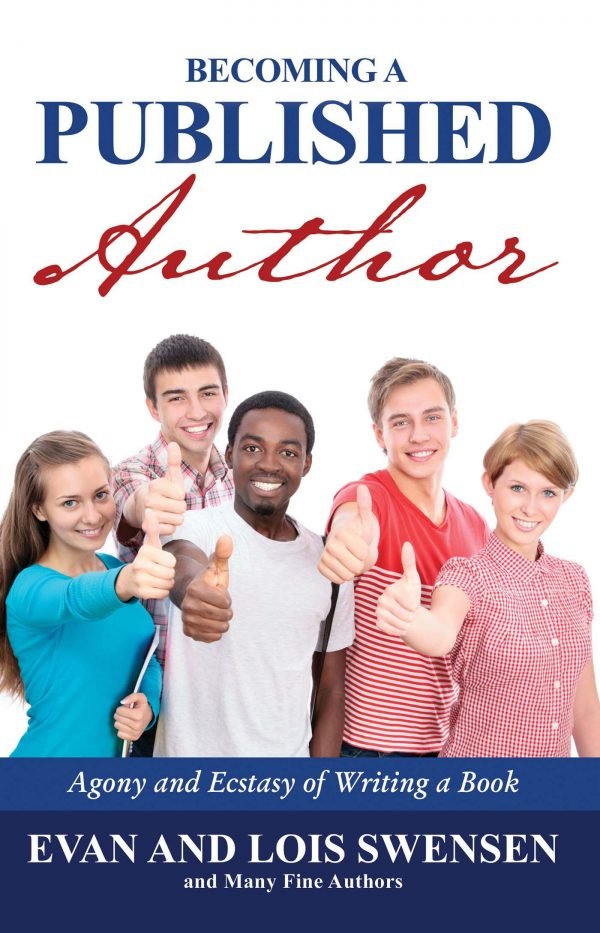Becoming A Published Author
Agony and Ecstasy of Writing a Book
By Evan and Lois Swensen
Chapter Twenty
The Hardest Job You Ever Love
Steve Levi

Perhaps the most important thing about writing is that if you don’t love it, don’t start. It is a long and lonely road, and you will not die a millionaire. But it will be the most challenging job you will ever love.
Getting published is a three-step process, with the first one being the hardest. That first step is to have something to say. While this may seem obvious, many writers seem to have missed that first step. Now, admittedly, sometimes it is on purpose. For example, if you want to sell a mystery novel, you’d better have a murder as close to the front of the book as possible. But then again, if you want to write genre, all you have to do is know how to type. Quality books start with quality ideas. If I do not have something new or different to say, I’m wasting my time as a writer. And I’m doing more than wasting the readers’ time. I’m discouraging them from looking at my other books. I want readers to know that every book I write is different from every other book on the market—and different from the last one of my books that they read.
As an example, my mysteries are impossible crimes. These are crimes where you cannot figure out how the bad guys did what they did. This gives my novels an extra dimension. Not only does the detective have to solve the crime, but he also has to do it while he is figuring out how the impossible crime occurred in the first place. In The Matter of the Deserted Airliner, a plane leaves Seattle with 245 passengers and a crew of 12. When the plane lands in Anchorage, it is empty–and the bad guys want $25 million in precious stones for the release of the passengers and crew. Now the detective has to deal with the payoff , figure out how 257 people can vanish into thin air, and, at the same time, stop the bad guys from getting away with it.
The second part of the writing process is the most fun: the first draft. That’s the l-o-n-g moment of discovery. You will get into the book, and it will begin to write itself. If you are working on a novel, the characters will generate their conversations, and while you may believe you have a plotline, don’t count on following it. Instead, follow where your characters lead. The same is true in nonfiction, except that you are following facts. I have yet to do a nonfiction book where I knew when I started where I would end up. I went where the facts led.
The last part of the writing process is what I call “the grind.” You have to edit and revise, edit and revise, edit and revise, edit and revise, edit and revise until you are sick to death of the book. Finally, you put it aside and, a few months later, you edit and revise, revise and edit, and edit and revise. Then, when you are so sick of the characters you cannot see straight, you start to look for a publisher.
I have been writing since the 1960s, and in the decades since then, I have watched in horror as the writing industry died, came back to life, died again, and came back to life only to die and come back anew. Until the 1980s, the publishing industry was dominated by about a dozen publishers, and every town in America had scads of bookstores. By the early 1990s, this condition had reversed itself. Hundreds of publishers and most towns in America had one or two bookstores. Then, with the rise of the personal computer, anyone could write, and a lot of anyones did. The belief was that if you had a word processor, you were a writer. Overnight secretaries became technical writers, and the professionals in the business disappeared. The quality of proposals, annual reports, newspaper stories, speeches, and other forms of communication went way down. Email and now texting continue this downward trend. Then came e-publishing and the quality of writing went into the sewer. At the same time, big money in writing disappeared. That was the novel-to-screenplay cash. At the same time, movies became more expensive to make, and with so many cable channels, the made-for-TV market disappeared entirely. Hollywood dispensed with original films and produced knock-offs. When was the last time you saw an original concept on the screen?
However, and this is a very big however, writing is making a powerful comeback. It is making that comeback not because writing is getting better, but because writers and publishers–ink-and-paper and electronic–now understand that to be profitable, they have to market their wares.
In the old days, the publisher took care of the publicity. Those days are gone forever. Advertising is expensive, and the competition is ferocious. Unless the author has a big name, a publisher cannot afford to print the book, distribute the book, advertise the book and still make the big bucks. On the flip side of the publishing coin, you can upload an eBook for free, but there are millions of eBooks out there, and to make a dime, you have to market, market, market. That’s not a dollar-and cents task; it’s a time task.
Now the emphasis is on getting your name and the book out. That’s why publishers like Publication Consultants are so important. Not only will they get the book out–yes, it is expensive–but you make your money back because if you don’t make money, Publication Consultants doesn’t either. That’s why you should take advantage of every book signing you can. It sells your book—which makes Publication Consultants happy—and it publicizes your writing. The marketing you do today will sell your books for the next decade. I like dealing with Publication Consultants because I get an email every month telling me how many books I did–or did not–sell. I have books with other publishers and have never received a statement.
Perhaps the most important thing to say to a writer is to lose your ego. If you are writing the story of your life because you think it’s been so interesting—don’t. The worst books I have ever read were written by people who had interesting lives but didn’t know how to write. They are ego-driven, and their books end up unreadable. That’s too bad because many very interesting people are going to have their life’s story disappear from history.
To finish on a personal note, one of the strongest incentives to being a writer is having a creative life. Once you are hooked on creativity, you will not have any downtime. I think of plot lines as I am driving to the store. I read an interesting tidbit in a magazine and see if I can twist it around enough to use it in a short story without someone saying, “Hey, I saw that in an article in Newsweek.” I have stolen every great line any of my friends have ever said. I have ideas for books I will never write and have been personally shocked at the high quality of books that came from concepts I thought were mediocre at the time. Life is full of surprises, and, as a writer, you will get a lot of them. At the very least, you will not spend your twilight years sitting on a rocking chair on the front porch thinking about nothing.


